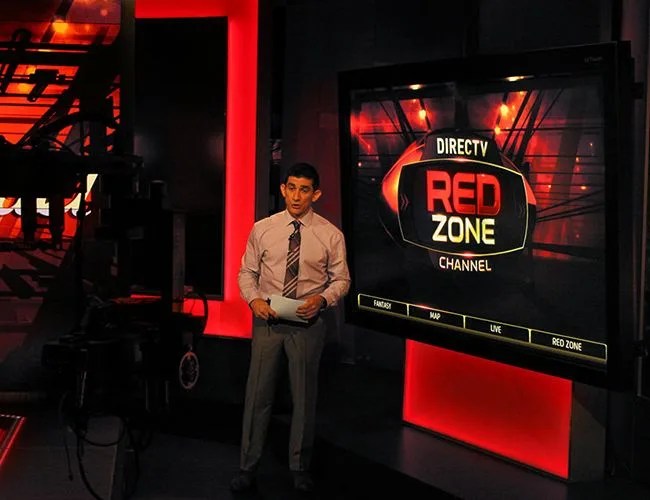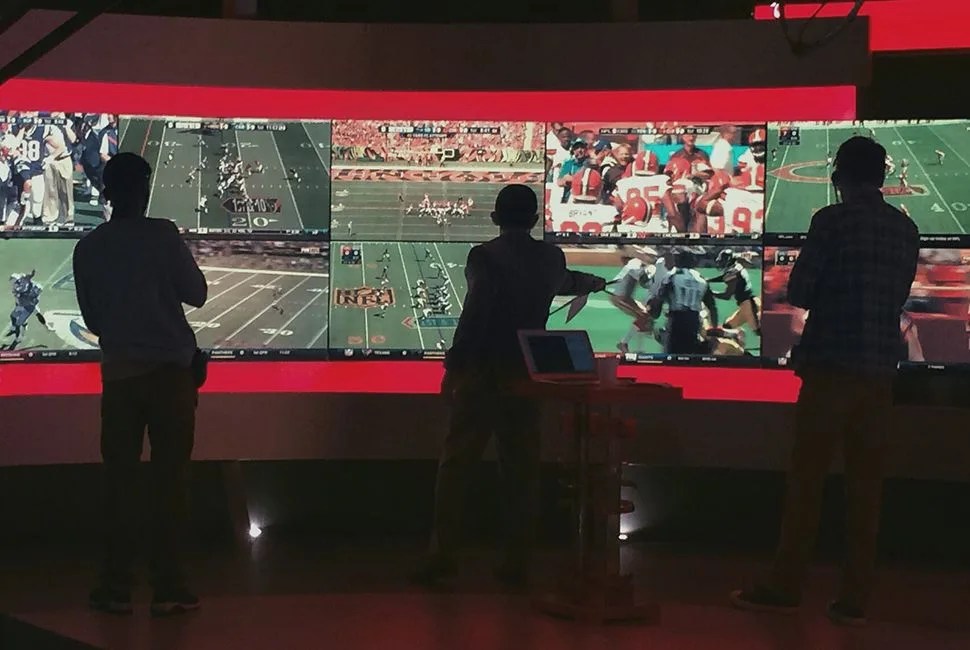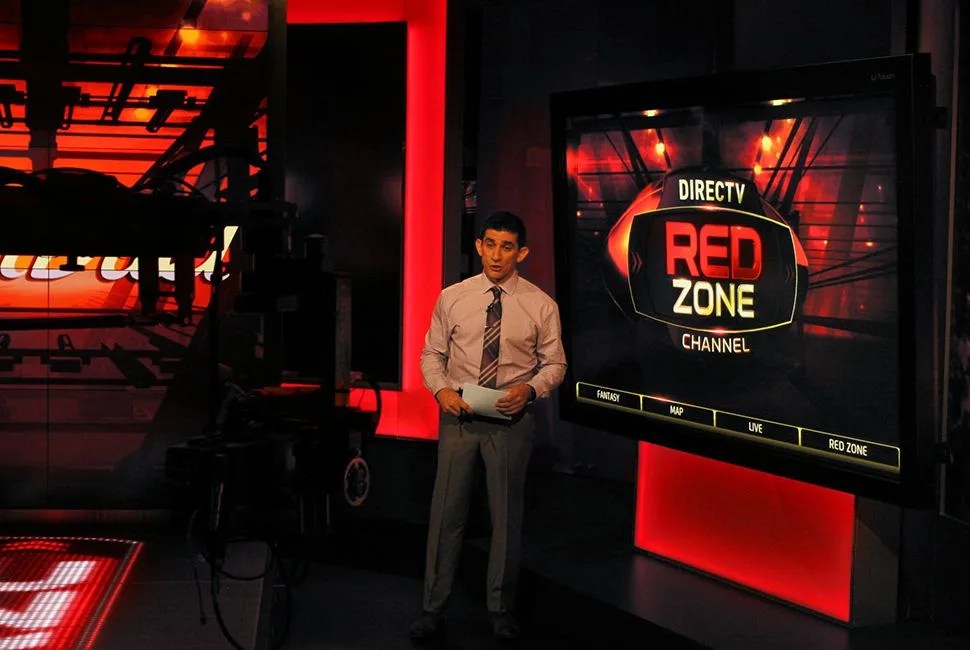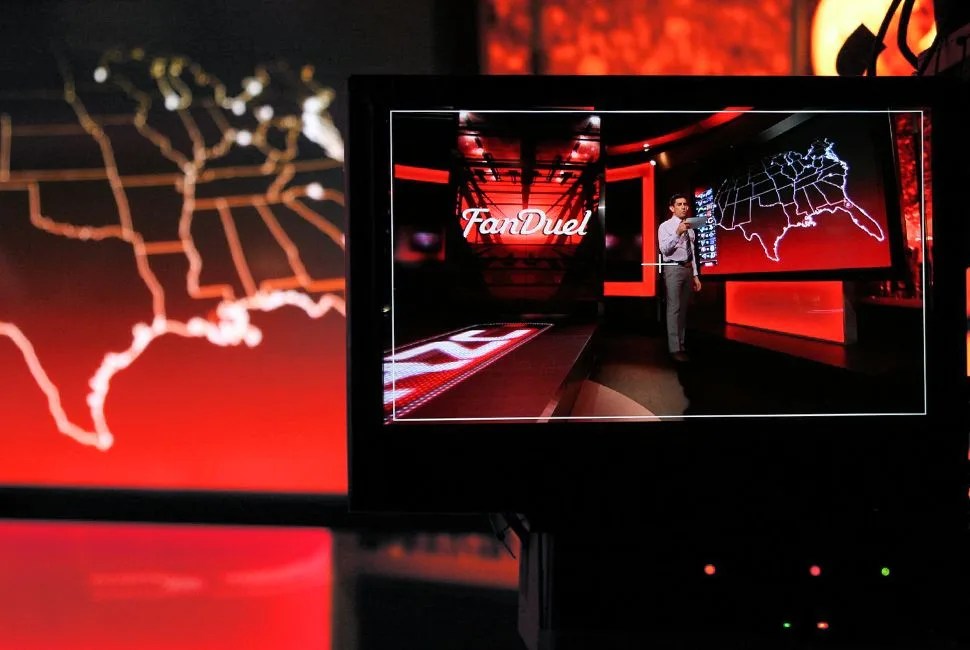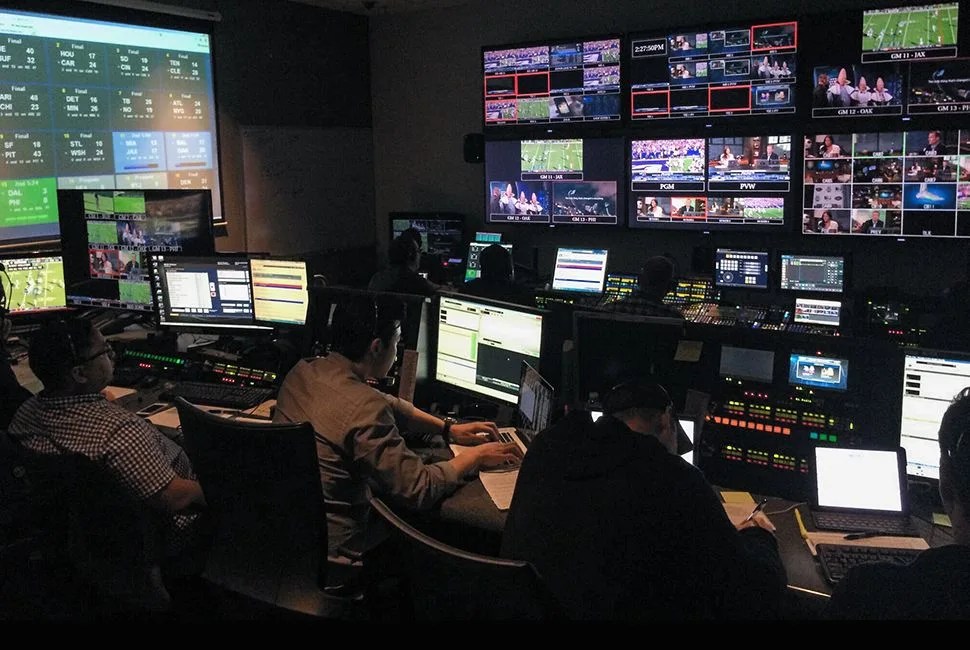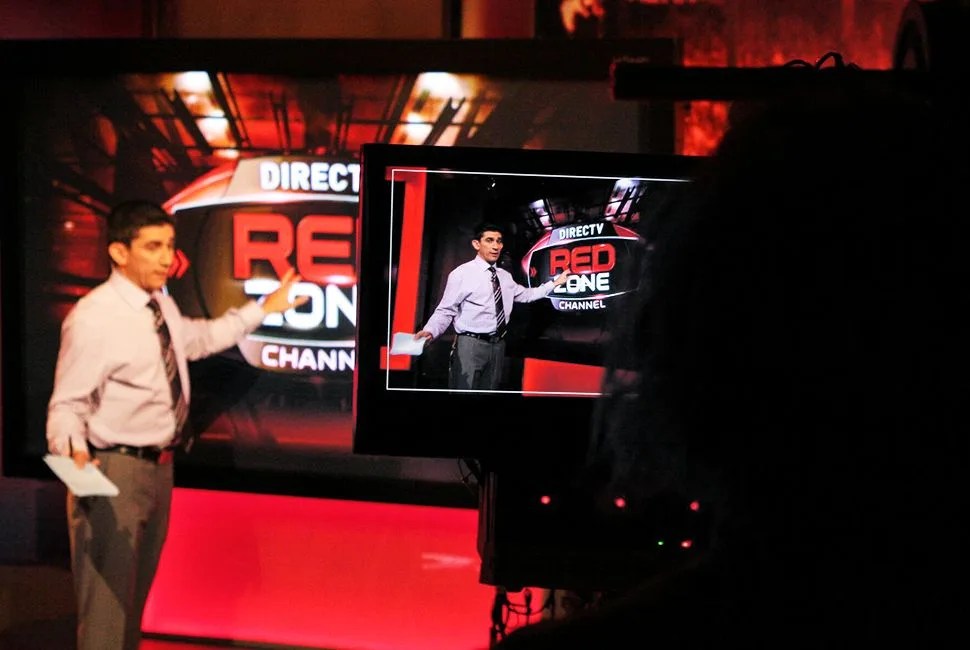5 photos
Andrew Siciliano and a pair of football stat gurus pace excitedly back and forth in front of a 103-inch wall of TVs at the DIRECTV RedZone studio in Los Angeles. It’s about 12:45 p.m. on the West Coast — the middle of the most frantic hour of NFL Sunday — and the trio is monitoring 10 different games to find the single most compelling moment among them to broadcast live on the RedZone channel. The Atlanta Falcons are mounting a late comeback against the New York Giants, the Cincinnati Bengals are trying to stave off a late surge from the San Diego Chargers, and rookie quarterback Jameis Winston is attempting to close out his first career victory for the Tampa Bay Buccaneers when Siciliano notices a moment that is comparatively subtle.
“Hey,” he says to producer Bill Wagner, “this is a big third down in Cleveland.” The Browns are at midfield and already up one touchdown. Wagner seems lukewarm to the idea of airing the play. Siciliano continues to sell it. Finally Wagner caves.
The instant RedZone puts the game on air, wunderkind quarterback Johnny Manziel takes a snap, spins out of the grasp of a blitzing linebacker, rolls to his left, and delivers an off-balance 51-yard touchdown pass to Travis Benjamin. In Manziel’s first true breakout game as a pro, this is unquestionably his finest moment. Siciliano and his stats researchers can’t contain their excitement; they explode into fist-pumps, yelps, and leaps into the air. “Sometimes you just have to guess,” Siciliano tells me later when we talk about his instincts while hosting RedZone. “We caught lightning in a bottle.”
This is the play that will be discussed at Monday’s proverbial water cooler. Later, when my Dad and I rehash the games via text message, he agrees the Manziel moment sticks out — though for him it was relegated to a clip on SportsCenter, like the majority of dedicated football fans.
* * *
RedZone has been running for 11 seasons and was inspired by an Italian program that showed all the live goals in Serie A soccer. In its very first brainstorming meeting, Siciliano laid out the tenets for the channel: no commercials and no downtime. He said he wanted to act as America’s remote.
Those who can afford to watch would likely agree with his description. The channel is only available to DIRECTV subscribers who have upgraded to the premium NFL Sunday Ticket Max package, which costs around $350 a year. The network doesn’t break down subscribers by package, but they have about 2 million Sunday Ticket viewers overall, according to a company spokesperson. The reason for the lofty price (HBO Now costs about $180 per year, Netflix is $119, and DIRECTV’s MLB package is $208) can be traced back to a rights fee arms race in sports and a deal DIRECTV made last year with the NFL to pay $1.5 billion annually for eight years in exchange for the right to show all the league’s games.
